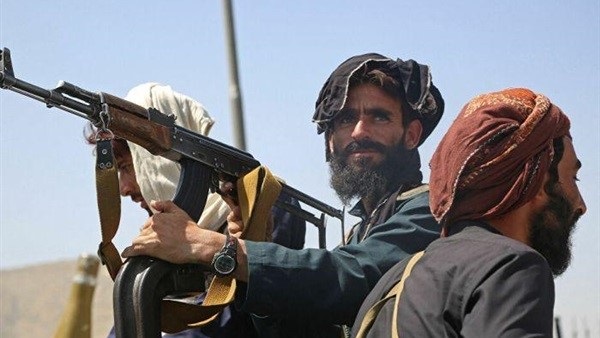Taliban running after former regime officials in Afghanistan

Images of the Taliban's
first public appearance in Afghanistan in 1996, specifically in September after
storming the United Nations headquarters in capital Kabul, are still alive in
the minds of the Afghan people.
Afghans still remember
the movement's arrest of former President, Mohammad Najibullah, his torture, abuse
and subsequent killing.
The members of the
movement posed with the late president's remains and hanged him in a lamppost
near the Presidential Palace in Kabul for several days.
They refused to bury him.
They then had to hand the remains of the late president over to the International
Committee of the Red Cross.
With the second rise of
the Taliban, the movement also fell into a state of contradiction between the
slogans of granting safety to the leaders of the regime of former President,
Ashraf Ghani, especially the military, and pursuing and abusing them to this
day.
Two years of
abuse
During the two years of
the Taliban's second rule of Afghanistan since August 2021, the movement
committed many crimes against military personnel and leaders of the former
regime, whom the movement, before coming to power, announced an amnesty for,
and then allowed them to participate in political life. Some of the members of
the former regime considered this a trap set by the movement for them, and soon
their expectations materialized.
The Office of the
United Nations Assistance Mission in Afghanistan revealed in a report published
to coincide with the two-year anniversary of the Taliban's coming to power, the
registration of 800 cases of human rights violations by the Taliban, including
extrajudicial killings, arbitrary arrests, torture and ill-treatment against
former security forces and government officials in the former regime.
The report showed that
there were more than 220 cases of extrajudicial killings of former soldiers by
the Taliban in 34 provinces, mostly in Kabul, Kandahar and Balkh, in addition
to dozens of cases of enforced disappearance and 424 cases of arbitrary
detention against former military personnel and officials.
The report included
some names, including of women, such as Alia Azizi, the head of Herat women's
prison, confirming that she disappeared from her place of work on October 2, 2021.
The report pointed out
that most of the former regime's military detainees are denied access to their
relatives or lawyers.
Taliban objecting
The Taliban replied to
the UN report by objecting, as Zabihullah Mujahid, spokesman for the movement,
said this report is unfounded.
The UN, he said, tries to
smear the Taliban.
Despite the Taliban's
denial of the UN report, the reality confirms the movement's involvement in
many cases of human rights violations against former officials and military
personnel, which sparked outrage among citizens, including a former interior
ministry officer who was taken by the movement to a deserted place.
Justifications
Asian affairs
specialist, Mohamed Abdel Razeq, said the Taliban was not expected to behave
with former regime officials, especially military ones, in a different way.
"What it does
against them is not surprising," he told The Reference.
"The movement looks
with suspicion at everyone who belongs to the former regime," he added.





